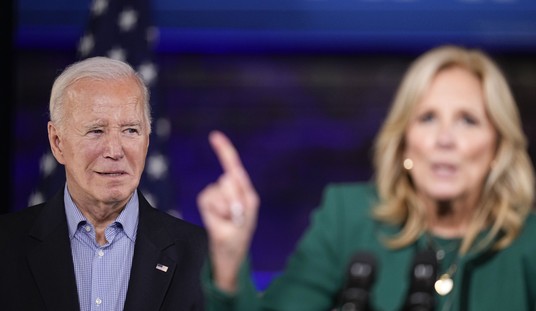California Proposition 19 would make the sale and use of marijuana for many purposes, beyond medical use, lawful and taxable in California:
Proposition 19, also known as the Regulate, Control and Tax Cannabis Act of 2010, is a California ballot proposition which will be on the November 2, 2010, California statewide ballot. It legalizes various marijuana-related activities, allows local governments to regulate these activities, permits local governments to impose and collect marijuana-related fees and taxes, and authorizes various criminal and civil penalties. In March 2010 it qualified to be on the November statewide ballot.
Under the proposition:
Persons over the age of 21 may possess up to one ounce of marijuana for personal consumption.
May use marijuana in a non-public place such as a residence or a public establishment licensed for on site marijuana consumption.
May grow marijuana at a private residence in a space of up to 25 square feet for personal use.
The official California report on Proposition 19 observes:
Marijuana is illegal under federal laws. If marijuana becomes legal in California under state law, it will still be federally illegal. The U.S. Supreme [Court] has previously ruled that federal agents can arrest medical marijuana users and growers even though Proposition 215 [enacted in 1996] makes that behavior legal in California.
Despite the announcement by Attorney General Holder last year that the federal government would avoid going after the legitimate medical use of marijuana, there has been no similar ex cathedra declaration by Attorney General Holder that non-medical use of marijuana (as Proposition 19 would authorize) is OK. In any event, the federal laws, enforced or not — rather like federal immigration laws — remain on the books. There are legitimate uses for prosecutorial discretion, but refusal to enforce federal laws because the attorney general and the president don’t like them and lack the necessary votes to change them are not among them.
The Holder Justice Department recently sued Arizona arguing that its new immigration law is unconstitutional on the theory of implied, as distinguished from express, federal preemption. Implied and express preemption are different, and the doctrine of implied preemption is far more tenuous than that of express preemption.
The doctrine of express preemption is dealt with quite well here, where is it noted that:
Under Article VI of the Constitution, valid federal statutes are, in the words of the Supremacy Clause, “the supreme law of the land.” That means that state laws are unenforceable to the extent that they conflict with valid federal laws. In such circumstances, lawyers say that the federal law “preempts” state law.
Here is a straightforward example of preemption: Federal copyright law gives composers and performers various exclusive rights to the publication and reproduction of their creative works. Suppose that some state, nonetheless, chose to legalize file-sharing, by passing a law giving all persons in the state the legal right to make electronic copies of downloaded songs for non-commercial purposes, without paying the copyright-holders. That state law would clearly be preempted, because it directly conflicts with the federal copyright law.
The sale and use of marijuana is cited as a classic example:
Under the Supreme Court’s 2005 ruling in Gonzales v. Raich, the federal marijuana prohibition is a valid exercise of congressional power to regulate interstate commerce; it thus trumps state laws legalizing medical marijuana.
The Arizona case relied on the doctrine of implied preemption because there was no significant basis for a claim of express preemption. According to the preemption primer linked above:
With a minor exception that the government’s brief relegates to a footnote, the Justice Department does not contend that the federal immigration laws expressly preempt Arizona’s S.B. 1070. Instead, the Justice Department argues that this is a case of implied preemption. Courts find implied preemption when a state law bumps up against federal policy, even if it does not directly contradict federal law (as in the copyright example) or run counter to an express preemption clause (as in the cigarette example).
I agree with this analysis, but with the exceptions discussed below it is essentially irrelevant to the California Proposition 19 situation. As noted in Gonzales v. Raich, federal statutes expressly prohibit the sale and use of marijuana as well as numerous other drugs, prescription or not, in ways not authorized under those statutes. Federal legislative attempts such as H.R. 2943 to permit the sale and use of marijuana for legitimate medicinal purposes have not been successful.
Even if the doctrine of express preemption did not apply to Proposition 19, the doctrine of implied preemption would hold for the simple reason that the stated purpose of Proposition 19 is to “regulate, control and tax cannabis”; it would regulate and control marijuana in ways quite inconsistent with the federal scheme. It would also encourage the use of marijuana and tax it. The additional tax revenues are needed by California, and were they not, the proposition would likely have less support than it presently does. According to the state legislative analyst’s office, the fiscal benefits would include the following:
Result in significant savings to state and local governments, potentially up to several tens of millions of dollars annually due to reduction of individuals incarcerated, on probation or on parole.
Cells currently being used to house marijuana offenders could be used for other criminals, many of whom are now being released early because of a lack of jail space.
Major reduction in state and local costs for enforcement of marijuana-related offenses and the handling of related criminal cases in the court system, providing the opportunity for funds to be used to enforce other existing criminal laws.
The measure would provide the opportunity for significant additional revenues as the result of the taxation of sales and businesses engaged in commerce relating to marijuana.
The report notes that there might also be negative fiscal effects.
I personally support the new Arizona immigration law, disagree with the arguments asserted in the recently filed federal complaint, and think that the legalization and taxation of marijuana as contemplated by Proposition 19 would be a valuable social experiment. If the people of California want to try it, they should not face federal problems in doing so under already excessively engorged interpretations of the commerce clause and federal preemption.
One of the many advantages of having multiple states is that ideas can be tried in one of them and, if successful, adopted by other states should they wish to do so. If unsuccessful, as seems to have been the case with the Massachusetts health care law, they don’t screw up other states and the federal government shouldn’t do so either by mimicking them. That, in essence, it did so in enacting ObamaCare is not a persuasive argument against states conducting such experiments.
Consistency in law enforcement is a vital part of the rule of law. Should Proposition 19 pass and should the federal government not seek to have it voided as unconstitutional, the inconsistency of its treatment with that of the new Arizona immigration law would be blatant and further demonstrate that law enforcement in the United States has become a matter of whimsical political convenience. That tendency must be reversed if we are to have any realistic hope of living under a government of law rather than of transient political and ideological whimsy. A good start would be for the federal government to seek dismissal of its recent complaint against the new Arizona immigration law.









Join the conversation as a VIP Member